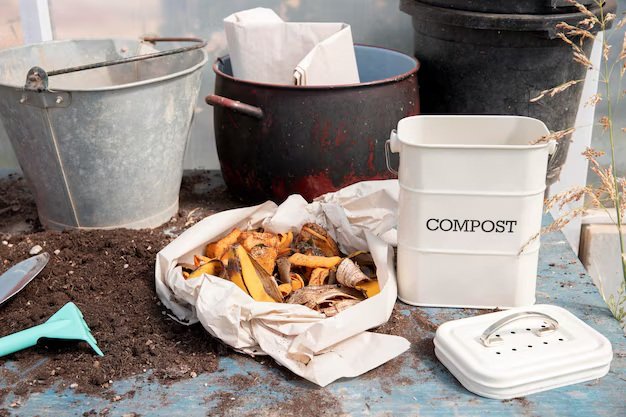10 Benefits of Gardening to the Environment and Why You Should Get Involved
We live in an era where global warming is at an all-time high due to pollution, rapid urbanisation and other unsustainable practices that will only negatively impact the environment. In such times, gardening has become not just a lifestyle choice for many, but as a practice that can significantly benefit the environment. Eco-conscious individuals who clearly understand the importance of promoting a sustainable future are making eco-friendly choices that contribute to a greener planet.
Gardening has evolved from being a normal hobby to a serious lifestyle. It is a sustainable practice with numerous environmental and health benefits. Through gardening, you can grow organic fresh produce, create a suitable habitat for various species—especially pollinators—and improve human health by enhancing air quality, reducing carbon emissions, and alleviating anxiety.
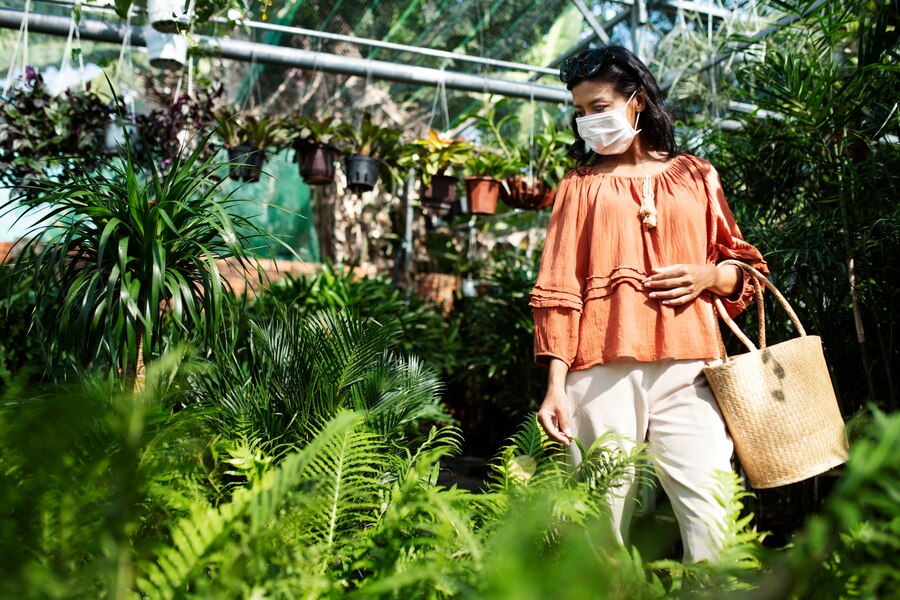
Why Is Gardening Essential for Your Well-Being?
Gardening is a lifestyle that many have embraced. It offers various health benefits for better living, which is often overlooked. If you have noticed, retirees often move to the countryside to start gardening or farming. Perhaps the older generation understands the benefits of gardening more than we do.
According to the Mental Health Foundation, during Mental Health Awareness Week 2021, spending more time around nature supports good mental health. Connecting with nature may provide a remedy for distress, and it supports our emotional, physical, and psychological well-being. Another study by the University of Exeter Medical School discovered that people moving to greener areas experienced significant improvements in their mental health.
Case Study: Gardening as a Therapeutic Tool
A notable example of gardening’s therapeutic value is Norway’s Green Care Program—a care program that incorporates gardening as part of a treatment process to help patients with mental health issues. Studies have shown that those who participated in the care program experienced reduced symptoms of anxiety and depression and improved mood. This case study highlights the importance of gardening and its ability to improve mental health.
Now, let’s explore deeper into the specific health benefits of gardening.
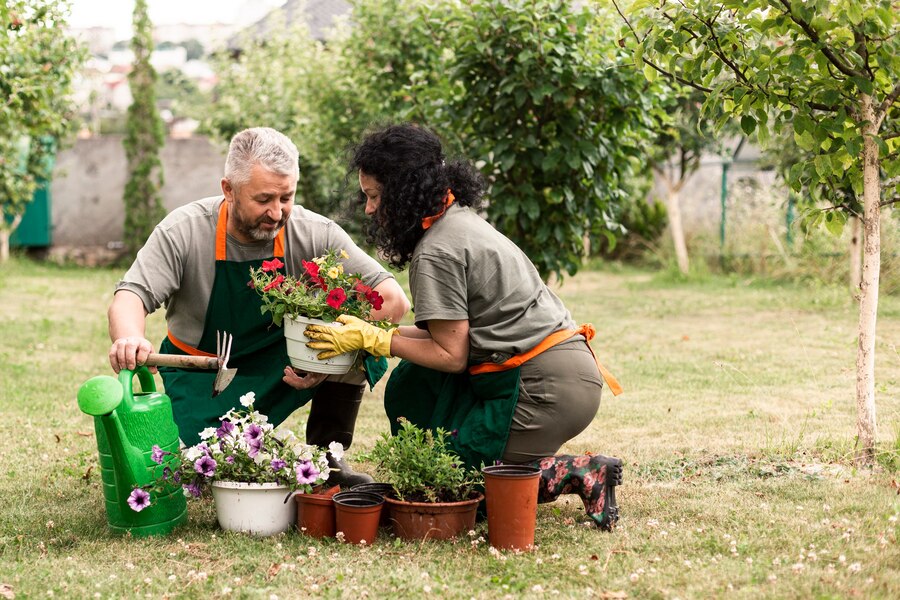
#1. Stress Relief
Gardening is a remedy for relieving stress and other physical discomfort. Spending more time in nature helps the body recover and heal. For instance, taking a walk around your garden is believed to help reduce your blood pressure and heart rate. The physical activity involved in gardening, along with exposure to nature, also contributes to a lower stress level.
A study discovered that gardening led to significant reductions in cortisol levels (a stress hormone). Gardening was found to be more effective than other leisure activities, such as reading. This study proves that gardening is a natural remedy that relieves stress and improves mental health.
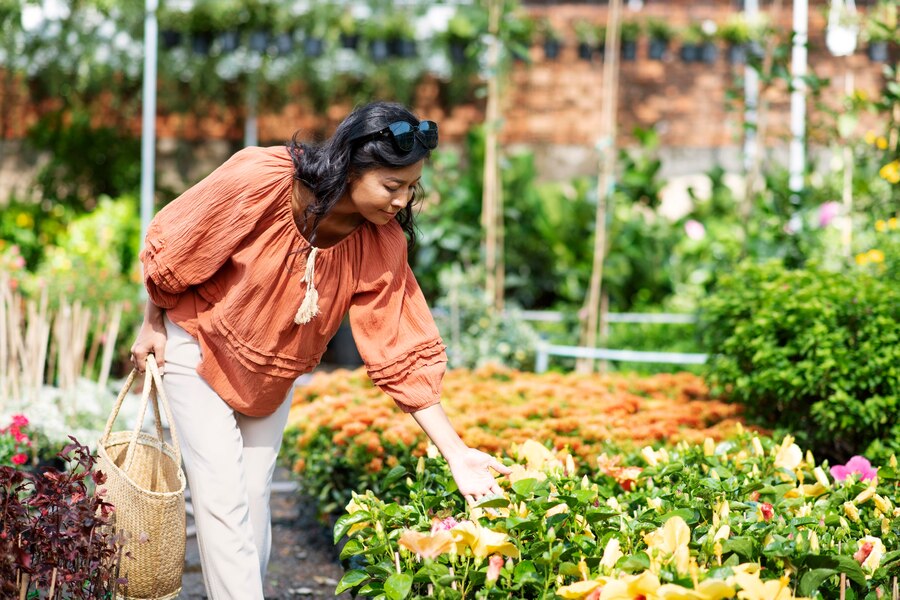
#2. Exercise
An article on MPCP suggests that gardening can be enjoyable and a form of physical exercise to improve human health. Engaging in gardening tasks like planting, digging, and weeding can improve your aerobic capacity and strengthen your muscles. The Centres for Disease Control and Prevention (CDC) classifies gardening as a moderate-intensity physical exercise, highlighting that 30 minutes of gardening activities can make one burn up to 300 calories.
#3. Vitamin D
Less exposure to sunlight can cause vitamin D deficiency, most especially in regions that experience long winters. According to Healthline, gardening can help you get enough sunlight while you are outside, enabling your body to produce vitamin D. Your body needs vitamin D for healthier bones and improved immune function.
#4. Fresh Produce
One exciting aspect of gardening is the ability to grow your own fresh fruits and vegetables in your backyard. Not everyone has access to fresh farm produce, and gardening provides a solution since it can be difficult to find truly fresh veggies in grocery stores. Growing fresh produce organically without the use of synthetic pesticides ensures that your fruits and veggies are enriched with nutrients for a healthier diet. Owning a home garden is also a sustainable initiative that supports food security by reducing our reliance on commercial food production and distribution.
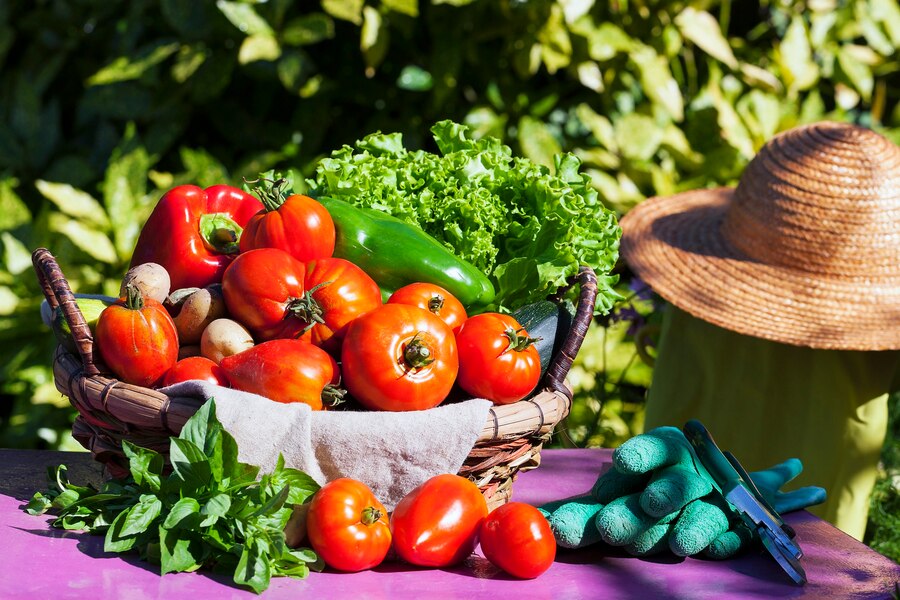
Benefits of Gardening to the Environment
Gardening is a green practice that contributes to environmental sustainability and promotes food security. There is no specific land size required for gardening. Whether you are using your backyard or a container to grow fruits and vegetables, home gardening still benefits the environment in many ways.
#1. Promoting a Greener Environment
Global warming is a pressing issue in the world today. It has led to extreme weather events, from record-breaking temperatures to droughts and wildfires. Our planet is in a critical state, and it’s our responsibility to protect the environment by mitigating climate change. While climate change activists advocate for a sustainable environment, we must play our part in supporting green initiatives, including gardening.
Global awareness campaigns emphasise the importance of planting trees rather than destroying them for resources. Deforestation is happening at an alarming rate in regions where trees once stood in nature. Gardening is a small but meaningful part we can play to promote environmental sustainability. It doesn’t require much to start gardening at home—you can start with small spaces, even using containers to grow fresh vegetables and fruits. A small garden can make a significant difference in achieving a sustainable environment.

Case Study: The Urban Gardening Movement
Major cities around the world are incorporating urban gardening initiatives to minimise urban heat islands. For example, in Detroit, a vacant lot was transformed into a community garden. The green spaces were created to promote food security and reduce urban heat islands. These gardens in Detroit not only beautify neighbourhoods but also promote the overall environmental sustainability of the community.
#2. Reduce Carbon Footprint
Organically grown crops in gardens are healthier than those sold at grocery stores. Growing your fruits and vegetables without synthetic fertilisers helps protect the environment and minimises your carbon footprint. By growing fresh fruits and vegetables in your backyard, you reduce your need to buy them at grocery stores, which also means less driving and lower carbon emissions.
A study by the Rodale Institute discovered that organic farming practices like those used in home gardens can reduce carbon emissions by sequestering carbon in the soil. This is a process that helps to mitigate climate change by capturing and storing carbon.
#3. Clean Air
Trees and plants are natural air filters that improve air quality. They produce oxygen and absorb carbon dioxide, which contributes to climate change. The plants in your garden create cleaner and more breathable air by absorbing harmful gases that produce a bad smell.
The American Lung Association emphasises the importance of green spaces in urban environments for improving air quality. The organisation noted that trees and plants can remove pollutants such as nitrogen dioxide and sulphur dioxide from the air.
#4. Minimising the Use of Chemicals
Health experts on Healthline.com recommend organic foods as healthier and environmentally safe to grow. However, we live in a world where commercial food production often relies on the use of fertilisers and pesticides; these toxic chemicals can negatively impact the environment, leaving harmful residue in the soil and water.
On the other hand, by growing food organically in gardens protects the soil and nearby water bodies from these toxic chemicals. Organic gardening benefits the environment and ensures healthier food production.
#5. Reducing Water Pollution
A rain garden is a type of garden designed to collect and filter rainwater. In regions that experience heavy rainfall, run-off from rooftops and driveways may carry pollutants into water sources. This is where rain gardens play a crucial role—they collect run-off and filter it through the soil to prevent pollutants from entering streams and rivers.
Case Study: Rain Gardens in Seattle
The city of Seattle, Washington, implemented a rain garden program to address stormwater run-off issues. These rain gardens are designed to filter pollutants from stormwater and improve water quality in local streams and rivers. The program was highly successful, inspiring other cities to adopt a similar model.
#6. Reducing Soil Erosion
Planting trees and shrubs has always been effective in preventing soil erosion. Tree roots make the soil firmer, reducing the risk of soil erosion during heavy downpours. This practice is important in areas prone to erosion.
A study by the Soil Science Society of America found that gardens and green spaces minimise the risk of soil erosion by almost 80%, highlighting the importance of planting trees as a measure to prevent soil erosion in vulnerable areas.
#7. Protecting Wildlife
Gardening creates new natural habitats for wildlife, especially pollinators. The plants soon become a home for insects, birds, and other small species. Your backyard garden is a safe zone for pollinators like bees, butterflies, and other beneficial insects.
Case Study: Pollinator Garden in the UK
In the UK, creating pollinator-friendly gardens has become a national initiative. These gardens are designed to attract bees, butterflies, and other pollinators, which are crucial for a healthy ecosystem. According to The Royal Horticultural Society (RHS), there has been an increase in pollinator populations in areas where these gardens are located.
#8. Minimizing Landfills
Incorporating composting with gardening can help reduce household waste, particularly food waste and any other organic material. Composting has allowed many households to reduce their solid waste by converting it into organic fertiliser to grow fresh fruits and vegetables. Composting is sustainable, which is ideal for gardening and reduces the amount of waste sent to landfills by transforming waste into organic fertiliser. By composting food or other organic waste, you create a sustainable cycle that improves soil fertility without contributing to environmental pollution.
The Environmental Protection Agency (EPA) promotes composting as a sustainable practice to reduce waste and greenhouse gas emissions. The EPA notes that composting organic waste can significantly minimise the environmental impact of household waste.
#9. Making Your Home Energy Efficient
A garden around your home can make it more energy-efficient. Trees are nature’s gift that provides shade for both humans and wildlife. Well-grown trees around your home become an important shade during hot summer months. Creating a relaxing spot under a tree can help you cut down on utility bills by spending time outside rather than using the air conditioner inside your home.
According to the U.S. Department of Energy, well-placed trees can reduce energy consumption for heating and cooling by up to 25%, which makes gardening a natural asset.
#10 Reducing Noise Pollution
Not everyone knows that gardening can reduce noise pollution. Naturally, plants and trees can absorb sound waves, making them effective barriers against noise, especially in urban areas. By planting dense shrubs or creating a vertical garden, you can reduce the noise level in your environment.
A study by the International Society for Photogrammetry and Remote Sensing discovered that urban green spaces can reduce noise pollution by up to 10 decibels.
Conclusion
Collectively, we can achieve a lot by adopting sustainable practices like tree-planting, composting, reducing waste, water conservation, and biodiversity protection. Gardening is one way to positively impact the environment.
The environmental benefits of gardening promote sustainability by reducing carbon emissions, preventing soil erosion, creating natural habitats for wildlife—especially pollinators—and improving air quality.
Gardening is a green initiative that helps ensure a sustainable future, where climate change is mitigated, and environmental pollution and contamination are reduced. As we mentioned earlier, there is no specific land size required for gardening. Whether you use your backyard or containers to grow fruits and vegetables, home gardening benefits the environment in many ways.


